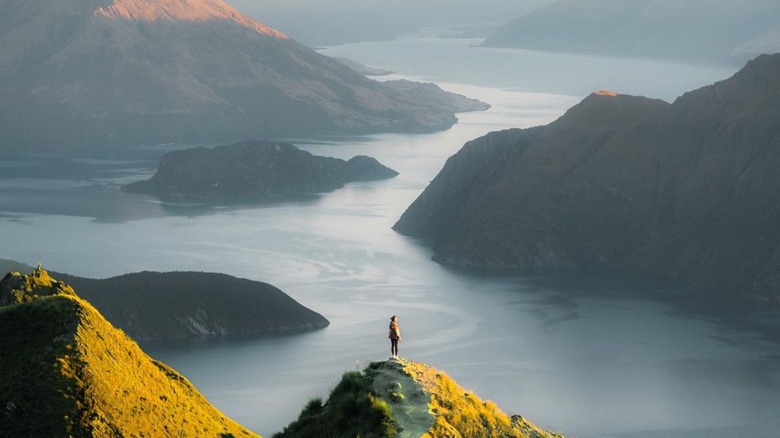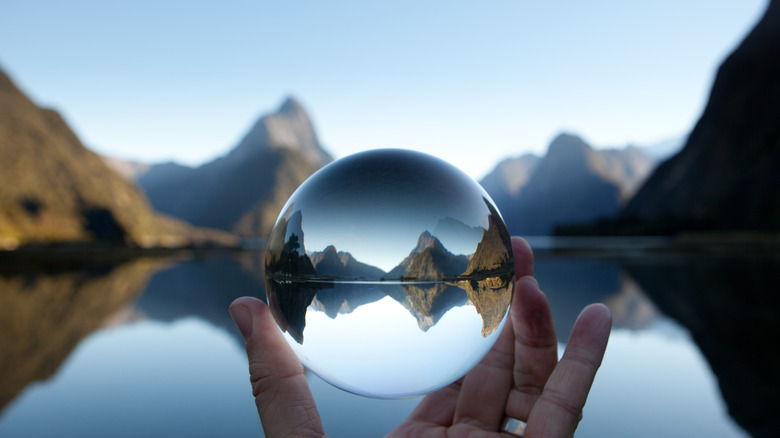The Breathtaking Island Country Causing A Stir By Tripling Its Tourist Tax
With a more connected world and increased technology in transportation, travel is more accessible than ever. International travel can promote cross-cultural understanding, create a deeper connection to the natural world, and bring much-needed income to far-flung destinations. Of course, travel has downsides, like pollution. As the industry booms, so, unfortunately, does overtourism, with 2024 expected to be the worst year ever for this upsetting trend.
Overtourism can cause damage to precious natural ecosystems, destroy historical sites and artifacts, contribute to climate change, and stress local economies to the max. Destinations across the globe are trying out different solutions to combat the impact of overtourism. Some destinations have banned cruises, others have put a cap on the number of visitors, while some, like Copenhagen, are providing incentives for eco-friendly activities, like picking up litter. One of the most enduring yet controversial is the tourist tax, a fee tourists pay upon entry into the country, and New Zealand recently made headlines for tripling its existing tourist tax.
The country is famous for its incredible landscapes, from black sand beaches to snowy mountain peaks, and is committed to its numerous environmental protection and wildlife conservation initiatives. In an attempt to support these programs, raise money for tourism infrastructure, and promote responsible travel, New Zealand originally introduced a $25 tourist tax in 2019. As of October 1, 2024, the tax — known as the International Visitor Conservation and Tourism Levy (IVL) — is now $62.
The tax was increased to keep New Zealand green
New Zealand is not easy to reach, yet in 2023, it received nearly 3 million visitors, and expects to welcome more than 5 million by the end of 2024. According to Matt Doocey, New Zealand's minister for hospitality and tourism, "Increasing the IVL means we can continue to grow international tourism to support economic growth while ensuring international visitors contribute to high-value conservation areas and projects, such as supporting biodiversity in national parks and other highly visited areas and improving visitor experiences on public conservation land."
Though some experts are concerned this higher tax could slow down tourism in New Zealand too much, the government thinks it's unlikely to significantly impact the number of visitors. When it comes to the opinions of travelers themselves, potential tourists seem happy to pay as long as their dollars go to a good cause, as promised.
In a Reddit thread on r/worldnews, tourists were supportive of the increase, with one Redditor writing, "It's one of the most beautiful and idyllic places I've ever been. Well worth the price hike. Protect it." As a trip to New Zealand is one that would be best to plan at least a year in advance, you'll have time to save up a little extra for the more expensive tourist tax.
What you can do to prevent overtourism in New Zealand and beyond
Now that travel is within reach for so many people, everyone should make sure they're not contributing to overtourism, both in New Zealand and elsewhere. Part of that is paying the tourist tax set by the government. Some destinations charge an extra tourist tax per night, often included in your hotel price. The most expensive is Bhutan's $100/night Sustainable Development Fee (which until recently was $200/night).
To travel more sustainably, you can also buy local. This can include sleeping at a family-run inn, purchasing souvenirs straight from the artisan, and ensuring any tours you take are ethical and support the community and the environment. Travel off the beaten path and aim to travel in shoulder season — you'll be able to avoid the crowds, your trip will likely be much cheaper, and locals will be happy to have some revenue in slower times. Following local rules can also go a long way toward sustainability (and, it's just respectful). Embrace slow travel and avoid day trips, and finally, fly direct when possible to reduce your carbon footprint.


